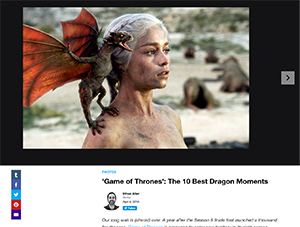
You and Your Investments: How Are You Doing? Part I: Coveting Your Neighbors’ Returns
Part I: Coveting Your Neighbors’ Returns
It’s ironic. One of the biggest questions we ask ourselves as investors is: “How am I doing?” While the question is a good one, if the answers are off-base, you risk changing course when you should be sitting tight, or sitting tight when you should be considering a change. This is not only frustrating, it can detract from … how you are doing. It’s a vicious cycle indeed.
When evaluating performance data, we recommend you first ask yourself an important question: What do these numbers mean to me? Even when every data point is entirely correct, if the comparison is irrelevant to you and your financial goals, the exercise is at best pointless and at worst can hurt your financial and/or emotional well-being.
Following are two of three performance comparisons that tend to fly in the face of your own best interests as a long-term investor. (We’ll cover the third one in our next post.)
Performance Comparison #1: Your Portfolio vs. “The Market”
We’ve covered this one in a post from almost exactly a year ago. (Maybe it’s that spring-cleaning itch that gets us thinking about analyzing our investment returns.) As we described in “Should You Compare Your Portfolio to the S&P 500,” no popular market index is likely to serve as an accurate comparison to your own distinct mix of asset classes and expected returns, especially if you own a globally diversified portfolio meant to reflect your personal goals and risk tolerances. It’s just not a meaningful comparison.
Performance Comparison #2: Your Portfolio vs. Your Neighbor’s
It’s never hard to find an assorted mix of investment “opportunities” that tempt you to second-guess your own portfolio’s allocations. Whether they come in the form of individual securities, entire asset classes or particular market sectors, when you see popular picks that have been outperforming or are expected to outperform your own, it’s natural to wonder whether you’re missing the proverbial boat.
The thing is, there’s always another boat about to arrive. This can leave you forever questioning your current choices. Take, for example, the recent rise of “smart-beta funds.” While some of the characteristics of smart-beta investing overlap our approach (and the precise definition varies), many of the hottest smart-beta funds lack the robust, evidence-based due diligence we require before we incorporate an expected source of return into our portfolio construction strategies.
In his Wall Street Journal piece, “Chasing Hot Returns in ‘Smart Beta’ Funds Can Be a Dumb Idea,” Jason Zweig observed, “Across many fields, studies like those that make the case for smart beta can be contaminated by luck, bias or confirmation of the researchers’ own beliefs. … If the researchers test enough possibilities, they may find positive results by chance alone — and may fool themselves into believing that luck didn’t determine the outcomes.”
To minimize the possibility that expected sources of return aren’t merely flukes disguised as patterns, we turn to the evidence that academics have successfully replicated in multiple global markets; observed across wide swaths of time; and published in respected, peer-reviewed forums. While even this evidence-based approach doesn’t guarantee success, we feel it offers the best odds, especially compared to a plan built on coveting your neighbor’s returns.
Next Up: Performance Comparison #3: Your Portfolio vs. Your Own Investments
In our next post, we’ll cover one more common comparison that leads investors astray. This one is particularly tricky. If you’re comparing your portfolio’s returns to the returns of its underlying investments, the numbers should match, right? Well … not always. Next up, we’ll explain how this works and what to make of it.
 SAGE Serendipity: The trailer is out for season 6 of Game of Thrones. The new season premieres April 24 and no, it’s not too soon to get excited. If you’re not a devotee already visiting the fan sites then visit Yahoo.com for extensive coverage — who we want to come back, who we want to die, and don’t forget the dragons. If you don’t have HBO and you want to see what the fuss is all about, the Game of Thrones site has a free-month offer and you can binge watch. April showers are a great opportunity (excuse) for a little diversion.
SAGE Serendipity: The trailer is out for season 6 of Game of Thrones. The new season premieres April 24 and no, it’s not too soon to get excited. If you’re not a devotee already visiting the fan sites then visit Yahoo.com for extensive coverage — who we want to come back, who we want to die, and don’t forget the dragons. If you don’t have HBO and you want to see what the fuss is all about, the Game of Thrones site has a free-month offer and you can binge watch. April showers are a great opportunity (excuse) for a little diversion.
 Secure Document Sharing
Secure Document Sharing



